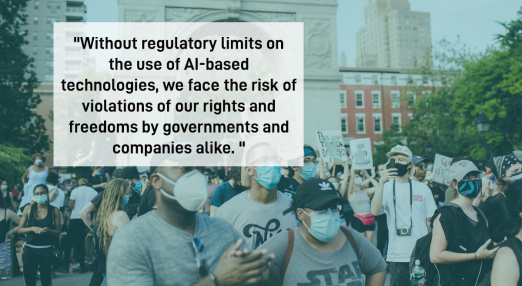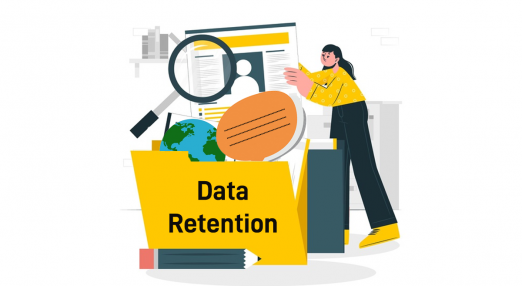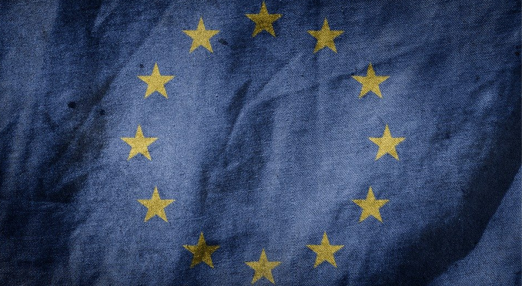Data protection standards
Filter resources
-

Why the electronic green vaccination certificate creates new problems instead of solving them
The National Council in Austria passed a legal basis for the electronic immunity certificate project within two days, skipping any kind of review procedure. The digital passes are not a ticket to a normal life, vaccination is. So, special attention should be paid to maintaining the trust of people and the voluntary nature of vaccination, ensuring that people's rights to privacy and freedom of choice are respected. EDRi's member epicenter.works explains what are the concerns with the deployment of green certificates and suggests alternatives to this project.
Read more
-

Stop Spying on Asylum Seekers!
How would you feel if the government was literally able to cut off your access to your cash, because your buying habits were deemed suspicious? That's the reality for many UK based asylum seekers, spied on by the Home Office through their 'Aspen Card', the debit payment card they rely on for their basic subsistence and survival. Join our member Privacy International in their efforts to stop the government's harmful practices of spying on some of the most vulnerable members of our society.
Read more
-

The EU should regulate AI on the basis of rights, not risks
EDRi's member Access Now explains why the upcoming legislative proposal on AI should be a rights-based law, like the GDPR. The European Commission must not compromise our rights by substituting a mere risk mitigation exercise by the very actors with a vested interest in rolling out this technology.
Read more
-

Czech Big Brother Awards awards worst privacy culprits
EDRi's member IuRe has recognised the most intrusive authorities, companies and technologies for the sixteenth time in a row at the Big Brother Awards. This year's awards were closely linked to the pandemic. Many nominations emerged as a part of the fight against COVID-19, limiting privacy in order to limit the spread of the virus.
Read more
-

EDRi challenges expansion of police surveillance via Prüm
The Prüm framework permits police forces of EU Member States to exchange DNA files, fingerprints, vehicle data via a decentralised system. The European Commission and the Council are pushing for a “Next Generation Prüm” in which facial images, firearms data, driving licenses, extracts of police records, data about third-country nationals and many additional types of data could be shared via the system.
Read more
-

Trust is a two-way street: the UK’s digital identity framework
Trust is a two-way street, and while the British government’s digital identity trust framework definitely makes steps in the right direction, those efforts need to be accompanied by a commitment to transparency and integrity, says EDRi's member Open Rights Group in response to the government's policy paper on UK’s digital identity and attributes trust framework.
Read more
-

116 MEPs agree – we need AI red lines to put people over profit
In light of the upcoming proposal for the regulation of artificial intelligence in Europe, 116 Members of the European Parliament (MEPs) have written to the European Commission’s leaders in support of EDRi’s letter calling for red lines on uses of AI that compromise fundamental rights.
Read more
-

Eurodac database repurposed to surveil migrants
Eurodac is the EU database used to store asylum seekers’ and refugees’ data, as well as certain categories of “irregular” migrants. By the end of 2019, the EU stored almost 6 million peoples’ fingerprint sets in the database. Research show how legislative developments transform the Eurodac database into “a powerful tool for mass surveillance”, endangering migrants' fundamental human rights.
Read more
-

Google’s FLoC Is a Terrible Idea
Google is leading the charge to replace third-party cookies with a new suite of technologies to target ads on the Web. And some of its proposals show that it hasn’t learned the right lessons from the ongoing backlash to the surveillance business model. In this post, EDRi's member Electronic Frontier Foundation (EFF) will focus on one of those proposals, Federated Learning of Cohorts (FLoC), which is perhaps the most ambitious—and potentially the most harmful.
Read more
-

CJEU upholds strict requirements for law enforcement access to electronic communications metadata
Traffic and location data may allow precise conclusions to be drawn about the persons involved, e.g. their social relationships or the social environments frequented by them. In most cases, the CJEU has only allowed access to such data for serious crimes. However, the CJEU ruled that access to retained data is only allowed in cases of serious crime when the access implies a serious interference, and in all criminal cases when the access does not imply a serious interference.
Read more
-

At a glance: Does the EU Digital Services Act protect freedom of expression?
The Digital Services Act is in many ways an ambitious piece of legislation that seeks to make ‘Big Tech’ accountable to public authorities through new significant transparency and due diligence obligations. It also contains many provisions that could help protect users’ fundamental rights. Whether it will be successful at protecting freedom of expression from undue restrictions or reining in the power of Big Tech rather than cementing it, is, however, questionable. EDRi's member ARTICLE 19 share its first thoughts on why.
Read more
-

“Anytime and anywhere”: Vaccination, immunity certificates, and the permanent pandemic
The deployment of vaccines, and in particular any “immunity passport” or certificate linked to the vaccination, must respect human rights. EDRi's member Privacy International (PI) reveals some of the broader human rights, ethical and societal implications of vaccination "passports".
Read more
